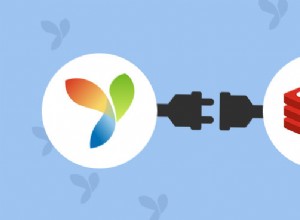Liên quan đến tính toàn vẹn tham chiếu khi xóa, với điều kiện tất cả các yêu cầu xóa đều được ứng dụng của bạn phục vụ thì ứng dụng của bạn có thể xử lý bằng cách kiểm tra ID không tồn tại trong các bộ sưu tập liên quan trước khi xóa bản ghi. Tôi làm điều này như sau
Hoạt động CRUD (Chúng tôi chỉ quan tâm đến Xóa ở đây - lưu ý cách tôi truyền một mảng đối tượng là tập hợp và trường cần được khớp với ID của tài liệu (bản ghi) mà chúng tôi đang xóa
const express = require('express')
const router = express.Router()
const iflexCRUD = require('../../lib/iflexCRUD')
const { UnitType } = require('../../models/Unittype')
const { Unit } = require('../../models/Unit')
iflexCRUD.create(router, '/', UnitType)
iflexCRUD.read(router, '/', UnitType, { sort: 'name' })
iflexCRUD.update(router, '/:id', UnitType)
iflexCRUD.deleteByID(router, '/:id', UnitType, [
{
model: Unit,
field: 'unittype'
}
])
iflexCRUD.delete(router, '/unittype/:unittype', UnitType)
module.exports = router
CRUD Delete Handler Đây là một trình xử lý yêu cầu xóa chung mà tôi sử dụng cho các hoạt động CRUD Tôi chuyển một mảng các giá trị của Bộ sưu tập / Trường và kiểm tra xem có một bản ghi nào khớp với ID của tài liệu đang bị xóa hay không.
// CRUD-DELETE
iflexCRUD.deleteByID = (router, route, Collection, refs = []) => {
router.delete(route, async (req, res) => {
try {
let exception = false
//Enforce Referential Integrity for deletes - Deny when ID is used in any of refs collections
//Loop through any referenced files (first record) to ensure there are no other collections using this document
for (let i = 0; i < refs.length; i++) {
if (!exception) {
let refObj = {}
refObj[refs[0].field] = req.params.id
const result = await refs[i].model.findOne(refObj, (err, rec) => {})
exception = result !== null
}
}
// Process deletion of there are no exceptions
if (!exception) {
const doc = await Collection.deleteOne({ _id: req.params.id })
res.send(doc)
} else {
return res
.status(401)
.json(
'Document is already use in related collection - it cannot Delete!'
)
}
} catch (e) {
return res.status(401).json(e.message)
}
})
}




